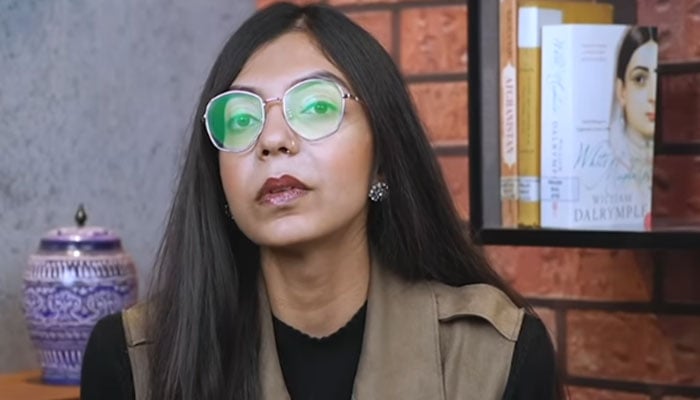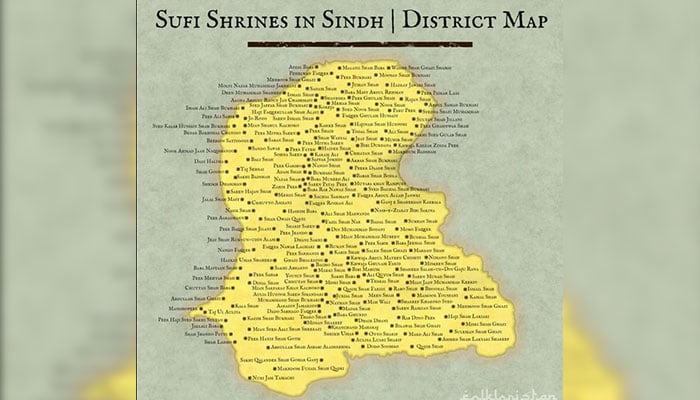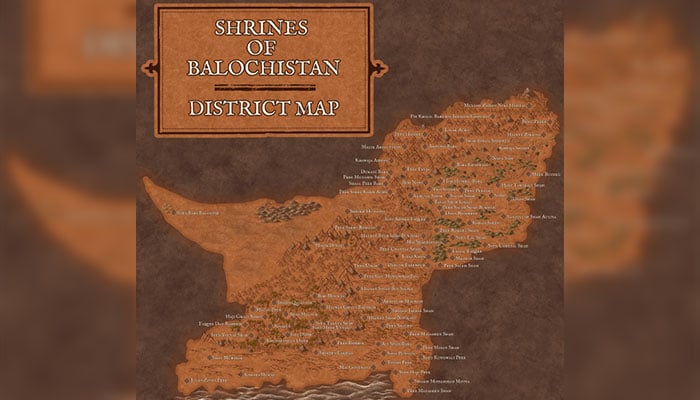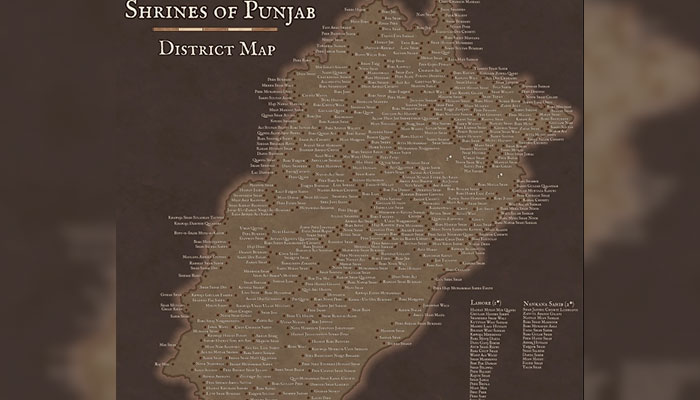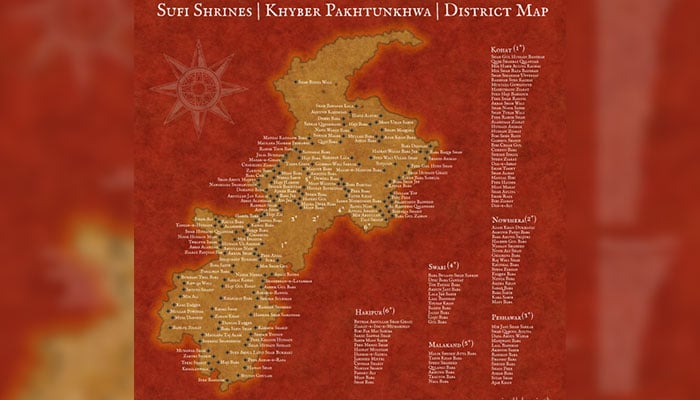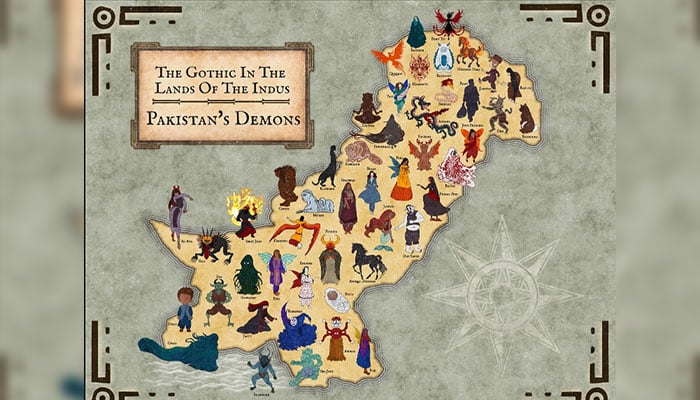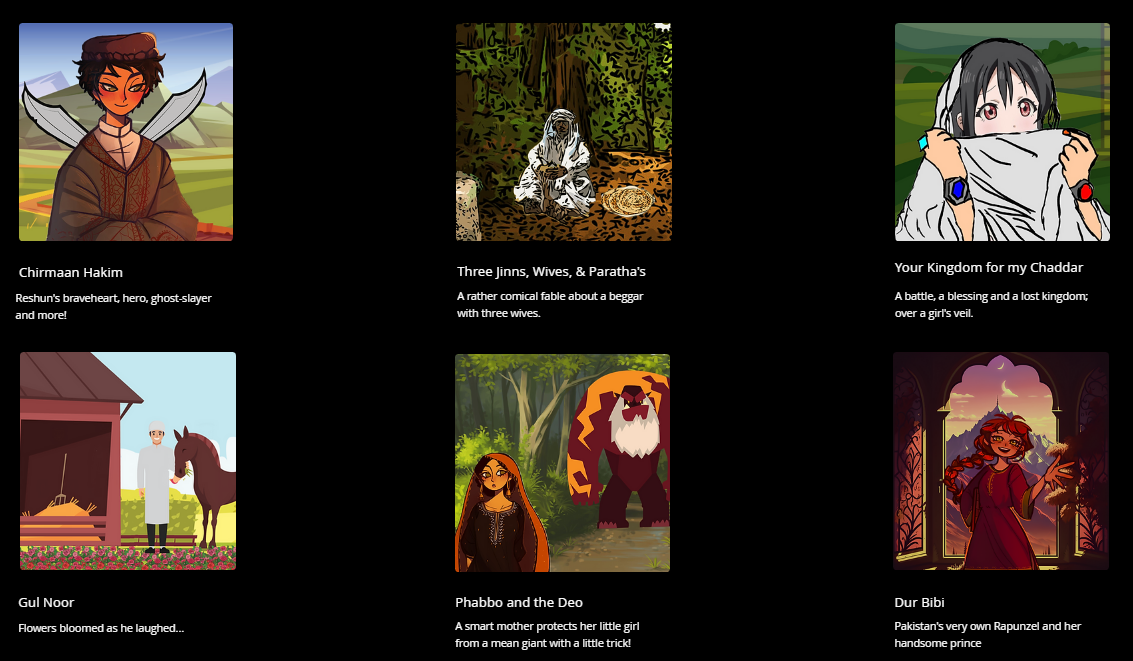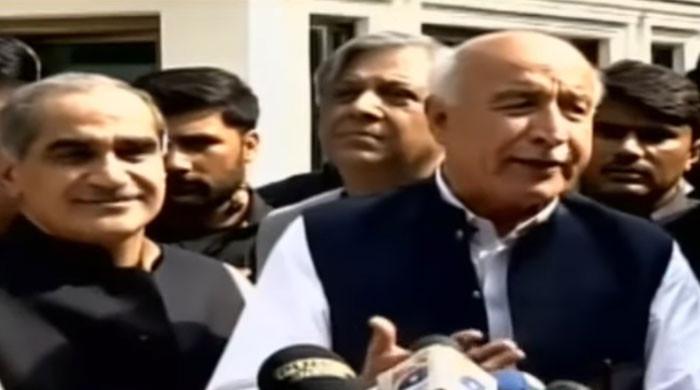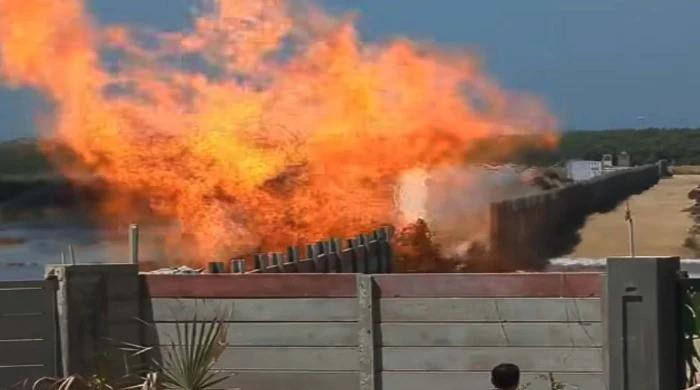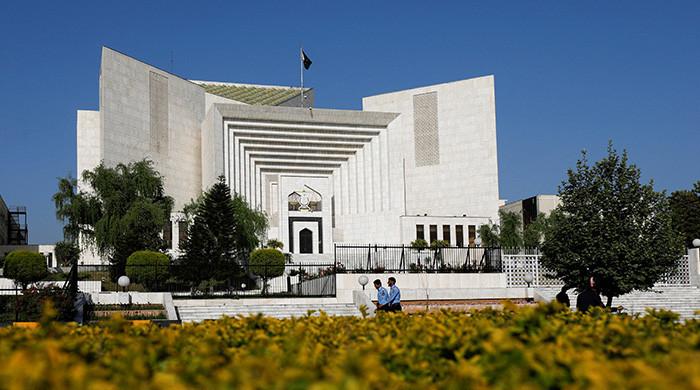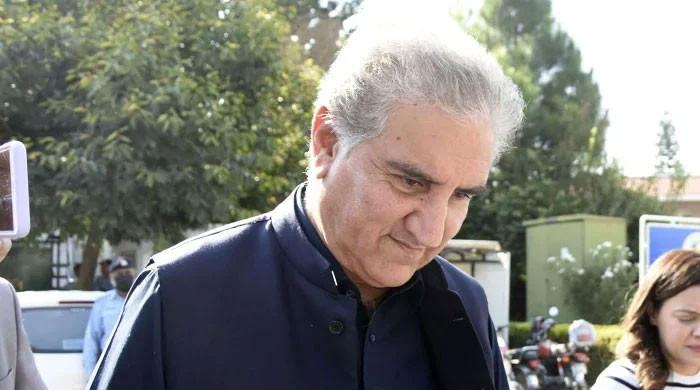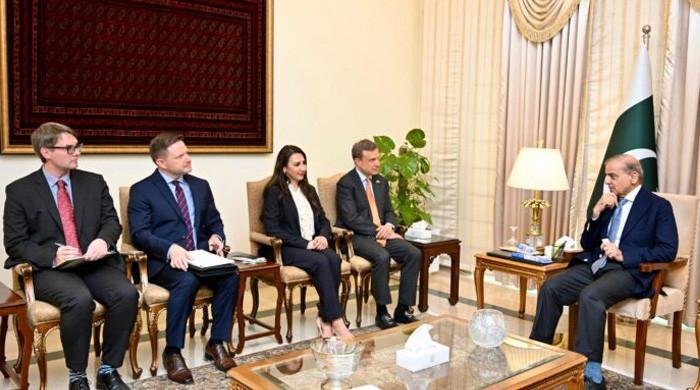Komal Salman maps Pakistan's shrines eternising Sufi legacies with technology — Here's her story
Initiative aims to bring awareness via digitalisation of country's rich folklore heritage and culture
December 20, 2023
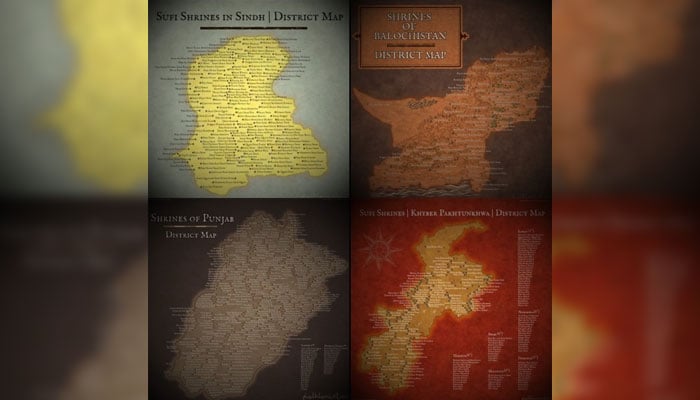
KARACHI: In the days of yore, our evenings were adorned with the enchanting stories spun by our mothers and grandmothers. We eagerly listened, even to the familiar ones, forging a connection not with technology but with people.
Today, our children are engrossed in cartoons and tales that often diverge from our cultural tapestry. Amidst this digital deluge, 'Folkloristan', a social media platform is on a mission to revive Pakistani culture and heritage through digital art.
Its singular aim is to weave the fabric of history and cultural tales, including our traditional narratives and heroes, into the digital realm, fostering easy access and connection for readers through social media.
Komal Salman, an Islamabad-based digital storyteller and the brains behind Folkloristan brings a unique perspective to the world of digital storytelling.
Armed with a media degree, Salman understands the science of social media like no other. In an exclusive conversation with Geo Digital, she sheds light on the inspiration behind Folkloristan.
"As a kid, I cherished listening to stories from my grandmother. However, I never found a cartoon character that wore similar outfits, had a familiar face, or enjoyed meals like mine. The representation was off at that time but now a lot has been done in this ground. I took it upon myself to change that for the next generation of Pakistani children," she said
Elaborating on the significance of Folkloristan, Salman termed it as "a collective memory of our past and people, we find stories, translate them into English, make digital art of it for the better understanding of the narrative through visuals – to make history not so boring but interesting."
Her vision mission with Folkloristan is as simple as it is impactful making sure every child sees themselves in the stories they love.
'Chronicles Pakistan's enchanting shrinescape'
A few days ago, a captivating map showcasing Sufi shrines all over Pakistan took social media by storm, courtesy of Folkloristan. The image intrigued many users, featuring shrines from diverse provinces, including Sindh, Punjab, Balochistan, and KP.
Commenting on her remarkable achievement, Salman said: "We gathered this information using online mapping tools, aiming to document as much as possible. Originally, our series set out to map the shrines of saints in Pakistan, correlating them with the identification of their relics."
She continued saying: "We envisioned associating Ghungru with Baba Bulley Shah's shrine and Laal Chunri with Lal Shehbaz's Shrine. However, as I delved into the research, it became evident that encapsulating all this in a single map wasn't feasible due to the vast number of saints and their shrines across Pakistan. Eventually, I decided on a different approach, opting to create individual maps for each district’."
"The map is created based on available online data, but it's not exhaustive. We encourage people to notify us if they come across any missing information," she noted.
However, she lamented that the information isn't available district-wise, saying that there's much work to be done in archiving Pakistani history for the next generation
“We unfortunately have [all of] this undocumented history. Going back 600 to 700 years, you get a fair idea of the big picture, but it's like doing a lot of guesswork, piecing it together like a quilt."
"Technology is the future, and if we don't document our past to be future-friendly, we risk moving backwards. Whether it's our animal-based fables, traditional stories, or romances, they all hold certain values intended to be passed down to our children,” she said.
Quest for cultural values in digital world
Salman also highlighted the current landscape of social media content and its lack of relevance to our cultural values, stating, "Nowadays, our children are hooked on social media. While there's a vast array of content available, it often falls short of reflecting our traditional and cultural values, parents also don’t want their children to be inspired by the things they see on the internet.
"There's nothing wrong with appreciating and learning about Western heroes, but it's equally important for our children to be knowledgeable about our own cultural heroes. We come to know about our heroes and villains through the stories we read. It's essential to provide our children with exposure to our own stories for a better understanding of our culture and values.”
With Folkloristan's social media platforms offering intriguing yet entertaining content, with the likes of Muhabbatnama and Safarnama, this all might change or at least begin to change.
Salman has bigger plans and she's gearing up to bring storytellers from around the world together for her new project, exclusively centred on ghostly tales.
She's already in touch with storytellers from Africa, Europe, and America, the focus is on native American and African American folktales along with storytellers from Lebanon, Yemen, and Palestine who are also in the loop.
